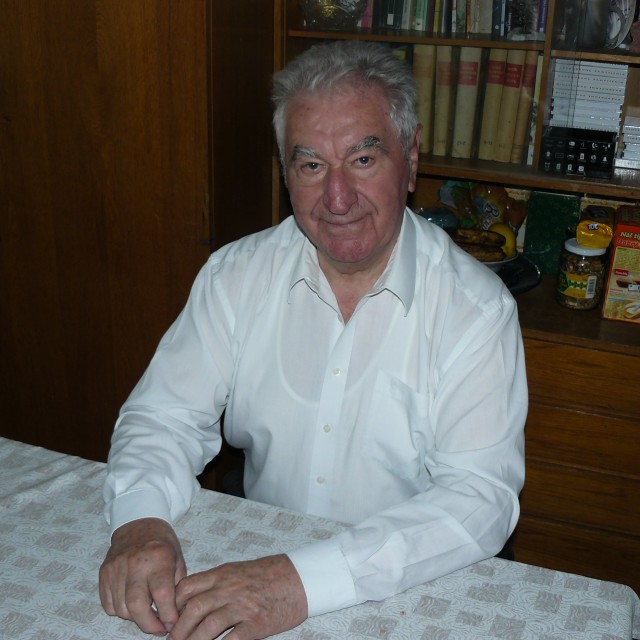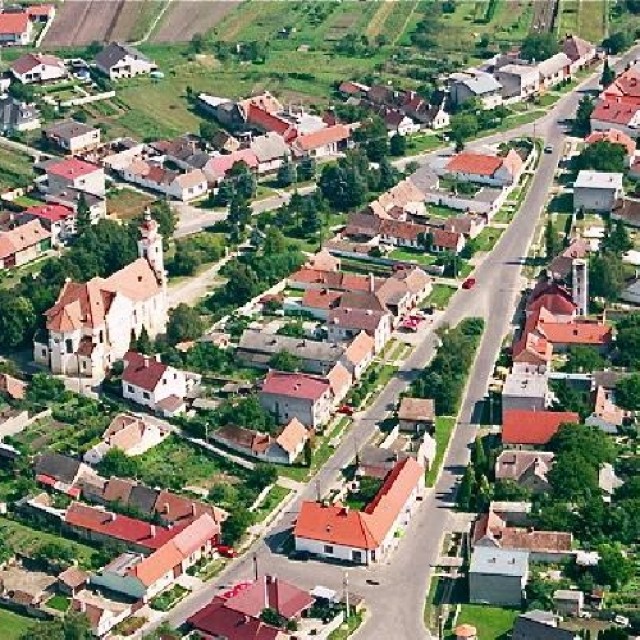They Were Stopped by the Swollen River
Since the communist regime didn’t allow Anton Srholec to fulfill his desire for priesthood, in 1951 he attempted to flee abroad to any country where might reach his goal. During that fateful night, the group, which included many older and exhausted priests, got to the embankment of river Morava with a few hours delay compared to the original plan. He recalled: “There were older and ill priests; we had to carry them from that forest through the fields. They were unorganized; some of them had big suitcases in which they carried their personal things, there was even a typewriter. It was really heavy and it slowed down the march. When they finally reached the river, they were astonished by its swollen watercourse. There was a question whether to go or not... the water was also between the bank of Morava and the embankment, so there would have been necessary to use the one dinghy for 23 people.” In the end they decided to return. However, on their way back, the majority of the group was detained by members of the Border Guard. After several months of remand, Anton Srholec was sentenced to twelve years of imprisonment. For almost a decade he served his sentence, looking for an escape that never turned out in the hell of Jáchymov labour camp.
Hodnocení
Abyste mohli hodnotit musíte se přihlásit!
Trasy
Příběh není součastí žádné trasy.
Komentáře

Anton Srholec
Anton Srholec was born on June 12th, 1929, in Skalica to a poor family of farmers. He was the only one of seven children that decided to study in high school. Since he desired to become a priest, he chose to study in a nearby Salesian high school in Šaštín. In April 1950, he was affected by the statewide action of the communist regime against religious orders called Action “K,” (K - in Slovak stands for – “kláštory,” meaning monasteries). After the violent takeover of the Salesian house in Šaštín, he was transported, along with his other classmates and priests, to a concentration monastery in Podolínec. Later he was moved to work at the Priehrada mládeže, (Youth Dam), what was supposed to be a re-education means of the ruling regime. Since this effort of the communist re-education of young students failed, finally they were released and Anton was able to graduate. Through the Salesian religious order, which had very close relationships with abroad, he got to a group of twenty-three priests and students, who in April 1951, attempted to escape to the West through river Morava. However, because of a swollen watercourse they had to return and on their way back the majority of the group was detained by expectant border guards. At first, Anton was taken to Bratislava Castle, then to the so-called prison U dvoch levov, (At Two Lions), and he ended up in the Leopoldov prison, where he spent two months on remand. Secret trial with the whole group took place at the State Court in Bratislava in February 1952. Here the young man, desiring only to study, heard the verdict – twelve years of imprisonment. Within a short period of time he served in prisons of Ilava, Olomouc, and Pankrác, but after all his final destination and “home” for almost a decade became Jáchymov. Anton struggled with unbearable working conditions; his health however, reached the level when he couldn't move anymore. In spite of this he had to continue to work. In the “last moment” he was saved by the declaration of amnesty, which referred also to political prisoners. Anton returned to his parents, although he couldn't find any job for a long time. He managed to work only as a non-qualified worker while being monitored by the State Security. In years 1965 – 1968 he worked in Ostrava - Vítkovice by blast furnace. He used his language skills that he acquired in prison and in a short time he passed his state exams from English and German language. This helped him to achieve a job in a Research Institute of Poultry Industry. In 1969 he applied for permission to three months stay in Italy, where in September 1969 he began his studies at the University in Turin. Anton was supposed to be ordained a priest in 1970 in Turin; however, since he didn’t obtain permission of stay long enough, he had to leave to Rome, where he was ordained on May 17, 1970 by Pope Paul VI. Despite of all this, Anton decided to return back home. Even though despite being a priest, he couldn't work in the spiritual sphere. He employed himself as a sacristan in Blumentál church in Bratislava and later a dean arranged permission for him from the state administration to help out also in priestly activities. Unfortunately, his spiritual work wasn't convenient for the communist regime and thus he was moved to Pernek, Veľké Zálužie, and to Záhorská Ves. In 1985 he was deprived of the state consent as well and he could again work only as a worker and a storeman in Doprastav, where he stayed until his retirement in 1989. The fall of communism in November 1989, and the start of the democratic system, are perceived very positively by Anton. As a person never broken by the communist regime he feels that he truly knows what freedom is. Until present he devoted himself to charitable activities. He is also active in various communities and social organizations.




